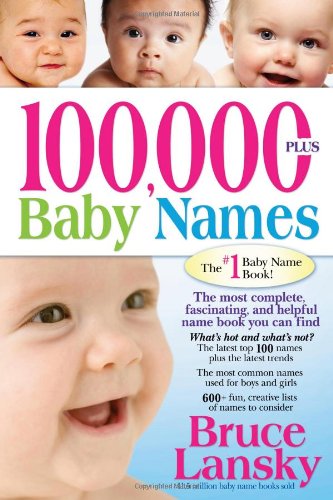
The Baby Name Book – 100,000 Baby Names
Science has proven that what you name your child really can affect them as they grow up.
A study of 3000 parents suggests that 20% OF PARENTS REGRET WHAT THEY NAMED THEIR CHILDREN.
And it’s all because one’s name really can influence how others treat you and how the child thinks about themselves.
Names that are uniquely spelled (“Briitny”), from a different era (“Edna”), or that sounds like it’s from the wrong gender (“Stevie”) could have a negative effect, even if the purpose was to give the child a sense of unique identity in today’s world.
Of those 3000 parents who did not regret their child’s names, there were a subset that said they would have chosen a different name for their child if they were allowed more time to think of one.
Some other conclusions from the study:
- 20% of parents in the study wished they had chosen a name that was easier to spell
- 8% didn’t like that people couldn’t pronounce their child’s name
- 10% thought that their child’s name was initially very clever, but that the novelty wore off later
David Figlio of Northwestern University in Illinois has analyzed thousands of children’s names, and reached these conclusions in 2005:
- Boys with girl-oriented names (like Shannon or Ashley) were more likely to misbehave and act out as they get older (about 6th grade and higher)
- Some names are inherently feminine by their phonetic makeup. Girls with those extremely feminine names (like Kayla or Isabella) would often select advanced coursework in school, such as in the humanities. Those girls with less-feminine names would select math and science.
- Spelling and phonetics of one’s name can predict social-economic indicators. Children with names that contain complex letter combinations that indicate poorly-educated parents often do worse in school than those children who have names that are spelled in a more traditional manner.
- When asked to name letters of the alphabet that they like, children with high self-esteem will like letters found in their own name, particularly the first letter.
- Children who have unusual spelling of common names tend to have slower spelling and reading capabilities.
